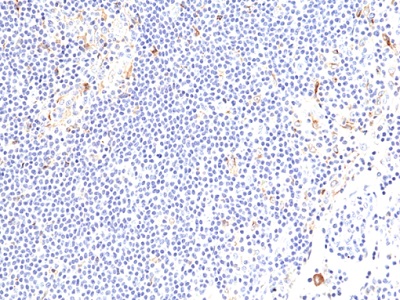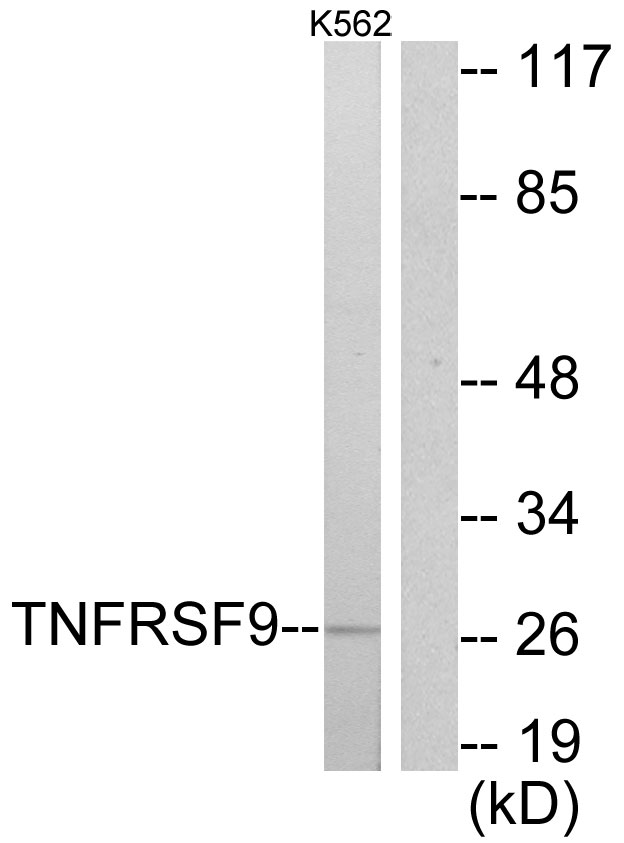
Immunohistochemical staining of formalin fixed and paraffin embedded Hodgkins lymphoma tissue sections using Anti-CD137 antibody (RM471) at 1:100 dilution.
anti-CD137 (4-1BB), Rabbit Monoclonal (RM471)
REV-31-1363-00
ApplicationsFlow Cytometry, Western Blot, ImmunoHistoChemistry
Product group Antibodies
ReactivityHuman
TargetTNFRSF9
Overview
- SupplierRevMAb Biosciences
- Product Nameanti-CD137 (4-1BB), Rabbit Monoclonal (RM471)
- Delivery Days Customer10
- ApplicationsFlow Cytometry, Western Blot, ImmunoHistoChemistry
- CertificationResearch Use Only
- ClonalityMonoclonal
- Clone IDRM471
- Gene ID3604
- Target nameTNFRSF9
- Target descriptionTNF receptor superfamily member 9
- Target synonyms4-1BB, CD137, CDw137, ILA, IMD109, tumor necrosis factor receptor superfamily member 9, 4-1BB ligand receptor, CD137 antigen, T cell antigen ILA, T-cell antigen 4-1BB homolog, homolog of mouse 4-1BB, induced by lymphocyte activation (ILA), interleukin-activated receptor, homolog of mouse Ly63, receptor protein 4-1BB
- HostRabbit
- IsotypeIgG
- Protein IDQ07011
- Protein NameTumor necrosis factor receptor superfamily member 9
- Scientific DescriptionCD137 is a member of the tumor necrosis factor (TNF) receptor family. CD137 is expressed by activated T cells, dendritic cells, NK cells, granulocytes and cells of blood vessel walls at sites of inflammation. CD137 has costimulatory activity for activated T cells. Crosslinking of CD137 enhances T cell proliferation, IL-2 secretion survival and cytolytic activity. CD137 was shown to enhance immune activity to eliminate tumors in mice. - Recombinant Antibody. RM471 reacts to human CD137 (4-1BB). Isotype: Rabbit IgG. Immunogen: Recombinant protein of CD137 extracellular domain. Applications: FACS, IHC, WB. Liquid. 50% Glycerol/PBS with 1% BSA and 0.09% sodium azide. CD137 is a member of the tumor necrosis factor (TNF) receptor family. CD137 is expressed by activated T cells, dendritic cells, NK cells, granulocytes and cells of blood vessel walls at sites of inflammation. CD137 has costimulatory activity for activated T cells. Crosslinking of CD137 enhances T cell proliferation, IL-2 secretion survival and cytolytic activity. CD137 was shown to enhance immune activity to eliminate tumors in mice.
- ReactivityHuman
- Storage Instruction-20°C,2°C to 8°C
- UNSPSC41116161






